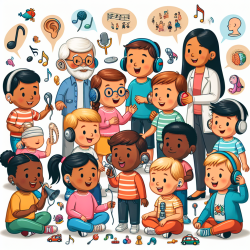The intersection of disability and opioid (mis)use presents unique challenges in providing effective support and treatment. Individuals with disabilities are often more susceptible to opioid use disorders (OUD) due to chronic pain and co-occurring mental health conditions. The research article "Peer Support at the Intersection of Disability and Opioid (Mis)Use: Key Stakeholders Provide Essential Considerations" offers valuable insights into adapting peer support models for this population. This blog post will explore key findings and suggest practical steps for practitioners looking to enhance their skills and understanding in this area.
The Importance of Peer Support
Peer support has been recognized as a promising approach in behavioral health, offering emotional, informational, and instrumental support from individuals with lived experience. For people with disabilities and OUD/SUD (substance use disorders), peer support can help overcome barriers such as stigma, accessibility issues, and the need for specific accommodations.
Key Themes from the Research
- Accessibility and Model Fit: Ensuring that peer support services are accessible in terms of location, physical access, and format is crucial. This includes utilizing virtual meetings to overcome transportation barriers and providing materials in diverse formats to accommodate various disabilities.
- "Peerness" and Peer Match: The concept of "peerness" involves matching individuals with peers who have similar experiences or conditions. This helps foster a sense of understanding and trust, which is essential for effective support.
- Recruitment, Training, and Support: Recruiting individuals with lived experience as peer supporters can provide them with a sense of purpose while helping others. Training should focus on understanding diverse disabilities and tailoring support to individual needs.
Practical Steps for Practitioners
1. Embrace Accessibility: Ensure that your services are accessible by considering location, transportation options, and the physical layout of meeting spaces. Utilize technology to offer virtual support options where possible.
2. Focus on Individual Needs: Conduct assessments to determine the best peer match based on individual identity and experiences. Be open to adapting models to fit the unique needs of each person.
3. Invest in Training: Provide comprehensive training for peer supporters that includes understanding various disabilities, communication techniques, and trauma-informed care. Encourage ongoing supervision and support to maintain quality service.
4. Foster Collaboration: Work with stakeholders from both disability services and behavioral health sectors to create integrated approaches that address the complex needs of individuals at this intersection.
The Role of Technology
The COVID-19 pandemic has accelerated the adoption of technology in healthcare delivery. Virtual platforms can play a significant role in providing peer support by offering flexible options that accommodate different needs. Consider incorporating video conferencing tools and online communities as part of your service offerings.
The Path Forward
The research highlights the potential benefits of adapting peer support models for individuals with disabilities and OUD/SUD. By focusing on accessibility, personalized care, comprehensive training, and technological integration, practitioners can enhance their ability to provide effective support.










